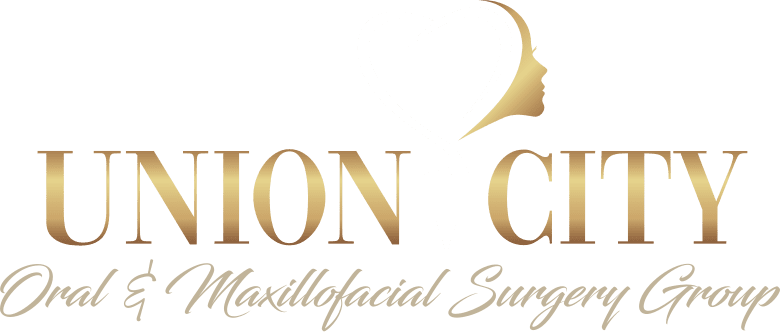Sleep apnea poses a comprehensive threat to more than your sleep schedule. Untreated sleep apnea can see you stop breathing for a worrying amount of time while you sleep, compromising your safety and long-term health. While CPAP machines and mouth guards can curb the worst of this condition, they’re temporary solutions to a lifelong problem.
If you want to tackle sleep apnea at its core, you might want to consider oral surgery. There are several unique oral treatments that can minimize the risk sleep apnea poses to your health. Our team at Union City Oral Surgery Group can help you determine the best path forward to help treat your sleep apnea.
4 Solutions Oral Surgeons Can Provide For Sleep Apnea
Some of the most common options for oral surgery for sleep apnea needs include:
Uvulopalatopharyngoplasty
On some occasions, sleep apnea is a symptom of a person’s struggle to breathe through a too-small airway. Uvulopalatopharyngoplasty, or UPPP, addresses that issue by removing unnecessary or excessive tissues from a person’s throat. This surgery often sees oral surgeons remove a person’s uvula, tonsils, and adenoids in an attempt to widen the patient’s airway.
UPPP specifically reduces the likelihood that a person’s tongue will block their airway while they sleep. This treatment often works best for patients with moderate to severe sleep apnea.
Genioglossus Advancement
Instead of addressing the size of a person’s airway, genioglossus advancement, or GA, reconfigures the positioning of a person’s tongue. Sleep apnea tends to stem from airway obstruction, a process the tongue can speed up if it collapses against the airway during sleep.
GA allows oral surgeons to reposition the muscle that controls the movement of the tongue. Doing so can reduce symptoms of sleep apnea and limit further risk of airway obstruction without compromising a person’s ability to speak, eat, or use their mouth normally. However, this surgery means that some patients must take time to relearn how to use their repositioned tongue muscle.
Maxillomandibular Advancement
Maxillomandibular advancement, or MMA, is another treatment that addresses the size of a person’s airway. Instead of removing tissue from a person’s throat, this treatment sees oral surgeons adjust the position of a person’s lower and upper jaws. Oral surgeons will bring both jaws forward, making it ideal for anyone with severe sleep apnea.
Oral surgeons will always account for unique features in a person’s jaw when conducting an MMA. Anyone interested in this treatment may need to discuss the necessity of nerve repositioning surgeries prior to the mandibular treatment.
Hyoid Suspension Surgery
Hyoid suspension surgery is the least common of the surgeries designed to treat sleep apnea. Instead of addressing concerns in the mouth, jaw, or throat, this surgery sees surgeons reposition the hyoid bone in a person’s neck. Doing so limits a person’s risk of airway collapse and can limit the worst symptoms of sleep apnea.
Discuss Your Sleep Apnea With Experienced Oral Surgeons Right Now
The amount of time it takes for you to recover from oral surgeries addressing sleep apnea varies depending on the treatment you received and any other health conditions you may have. However, our oral surgeons most often see patients recover within one to two weeks of surgery, with swelling dying down and discomfort fading. Surgical treatments address the heart of your sleep apnea, not its symptoms, ensuring that you can sleep more soundly and without risk to your long-term health.
Are you considering oral surgery as a treatment for sleep apnea? Consider booking a free surgical consultation with our oral surgeons. We treat each of our clients’ concerns with care and will make your exploration of sleep apnea solutions as straightforward, transparent, and accessible as possible. Call (201) 601-9262 or contact us online to schedule your first appointment.


